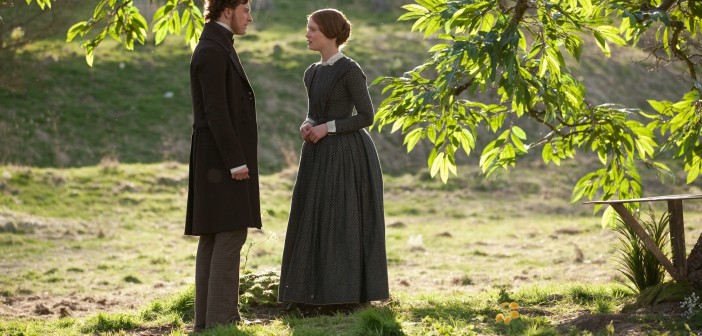In Tim Burton’s Alice In Wonderland, I personally found Mia Wasikowska to be pretty but a bit wooden. She definitely had an ethereal and delicate quality to her, but beyond that shallow surface, I didn’t see much spark.
Nothing could be further from the truth in the latest Jane Eyre directed by Cary Fukunaga. Mia Waskiowska inhabits each scene with a calm ferocity that feels perfect for the complicated and, at times, hard to pin down heroine of Bronte’s novel. Jane Eyre is the type of girl that we are actually all very familiar with – which is what makes her such an interesting choice of protagonist for a gothic tale. She isn’t melodramatic or flighty. She isn’t conventionally pretty or striking. She’s not ever exceptionally brilliant. She’s level-headed and rational and keeps her feelings tightly held to her out of necessity. This last part is where the difficulty comes in in terms of casting her character in a movie role. We have to have both – coolness and passion without being heavy-handed or engaged in annoying, fickle mood swings. Wasikowska manages to sit calmly and act with only her eyes.
On the other side of the couple, Michael Fassbender does the unexpected thing and makes Rochester more wounded than brooding. He doesn’t really stomp around and scare the household as most gothic figures are required to do. He’s snippy at times and says insulting things, but one gets the impression that he’s TRYING to get a reaction from the people around him. When Jane gives him a little bit of a fight with her words, you can see the moment his interest in her lights up and from that moment on, she’s the only thing he focuses on throughout the entire movie. His acting really gets moving, though, near the end when his whole precariously balanced life starts to teeter and he resorts to begging and groveling at Jane’s feet and the acting is so good it’s almost uncomfortable to watch.
In terms of story, the movie holds pretty true to the book, though it does move things around to tell the story out of order. It also skips some parts that I felt would have been enjoyable to watch, including a small part around the time Jane has to leave to visit a sick relative. The most important part, however, to me is that that language and dialog was not changed to make the lines easier for modern audiences and it keeps the lyrical and tightly constructed rhythm that Bronte created, especially during the proposal scene.

